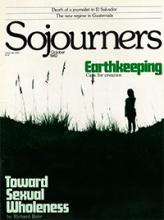"Thank you God, for you have put me here," prayed Brigadier General Jose Efrain Rios Montt on June 9 of this year as he became president of Guatemala. Earlier that day hundreds of troops with armored vehicles had surrounded the Interior and Communications Ministries, forcing the resignations of the other two members of the triumvirate who had ruled the country since taking power in a March 23 coup. The putsch quickly consolidated the position of Rios Montt as the new military strongman. In addition to taking the presidency, Rios Montt became the nation's sole legislator and commander of the armed forces.
Rios Montt is a self-avowed born-again Christian who has declared his intention to run the country on Christian principles. The New York Times reported that on the evening of the coup, Rios Montt addressed the people of Guatemala shouting, "I have confidence in my God, my master and my king, that he will guide me. Only he can grant and take away power." Rios Montt's invocation of God's enlightenment, however is drowned out by the cries of the victims of increased violence directed at the country's rural Indian peasants.
In June the Association of Guatemalan Newspaper Writers reported 4,000 deaths due to political violence in the first two months following the coup. International human rights organizations attempting to monitor the situation have attributed most of the deaths to the policies of the Guatemalan army.
Rios Montt is at best a bundle of contradictions. In dealing with members of the Committee for Peasant Unity who seized the Brazilian Embassy in May, Rios Montt held back the army with the biblical admonition that "a soft answer turneth away wrath." This averted a catastrophe like that created in the takeover of the Spanish Embassy in 1980, when the Guatemalan army killed 39 people.
Read the Full Article

